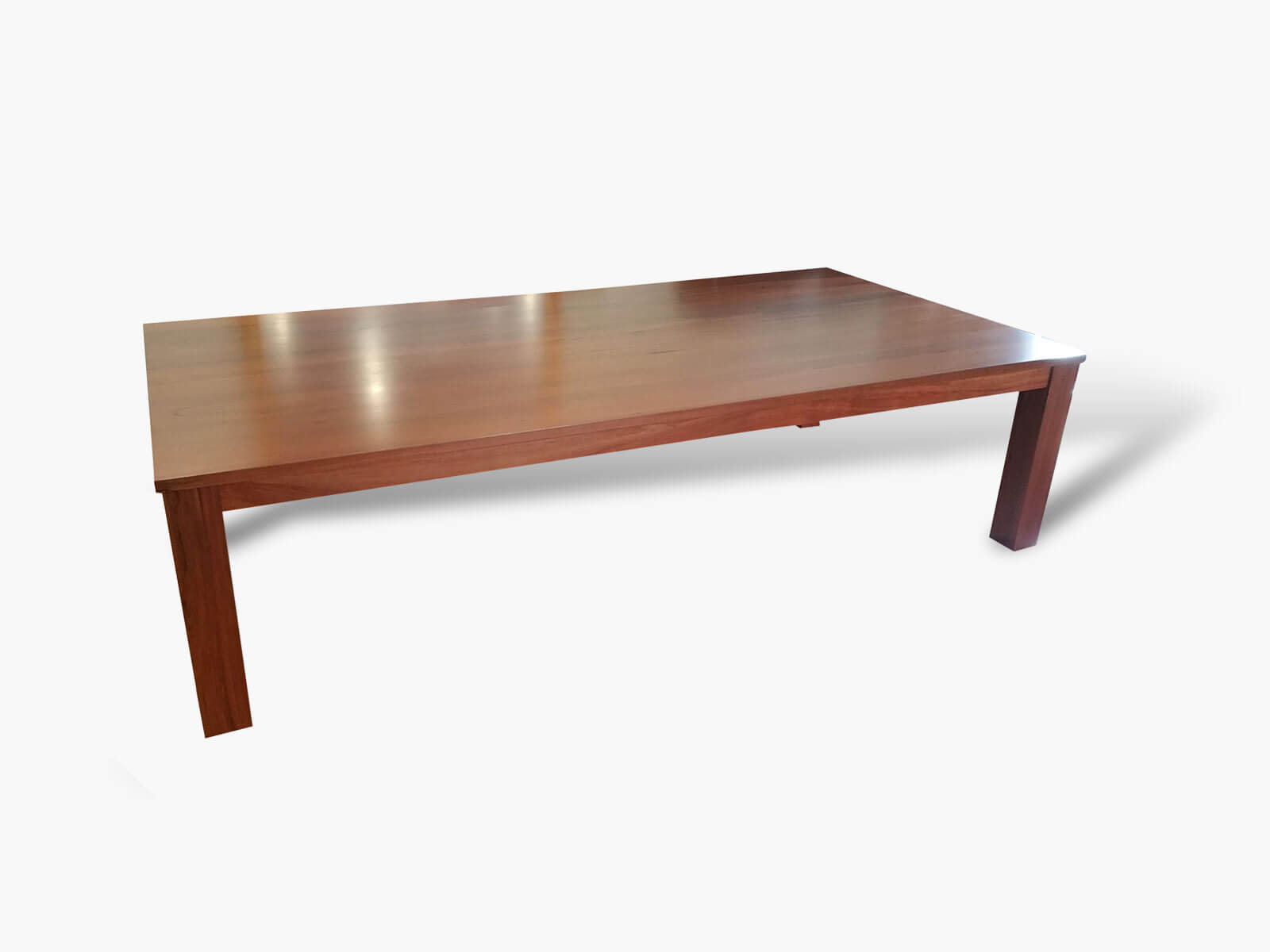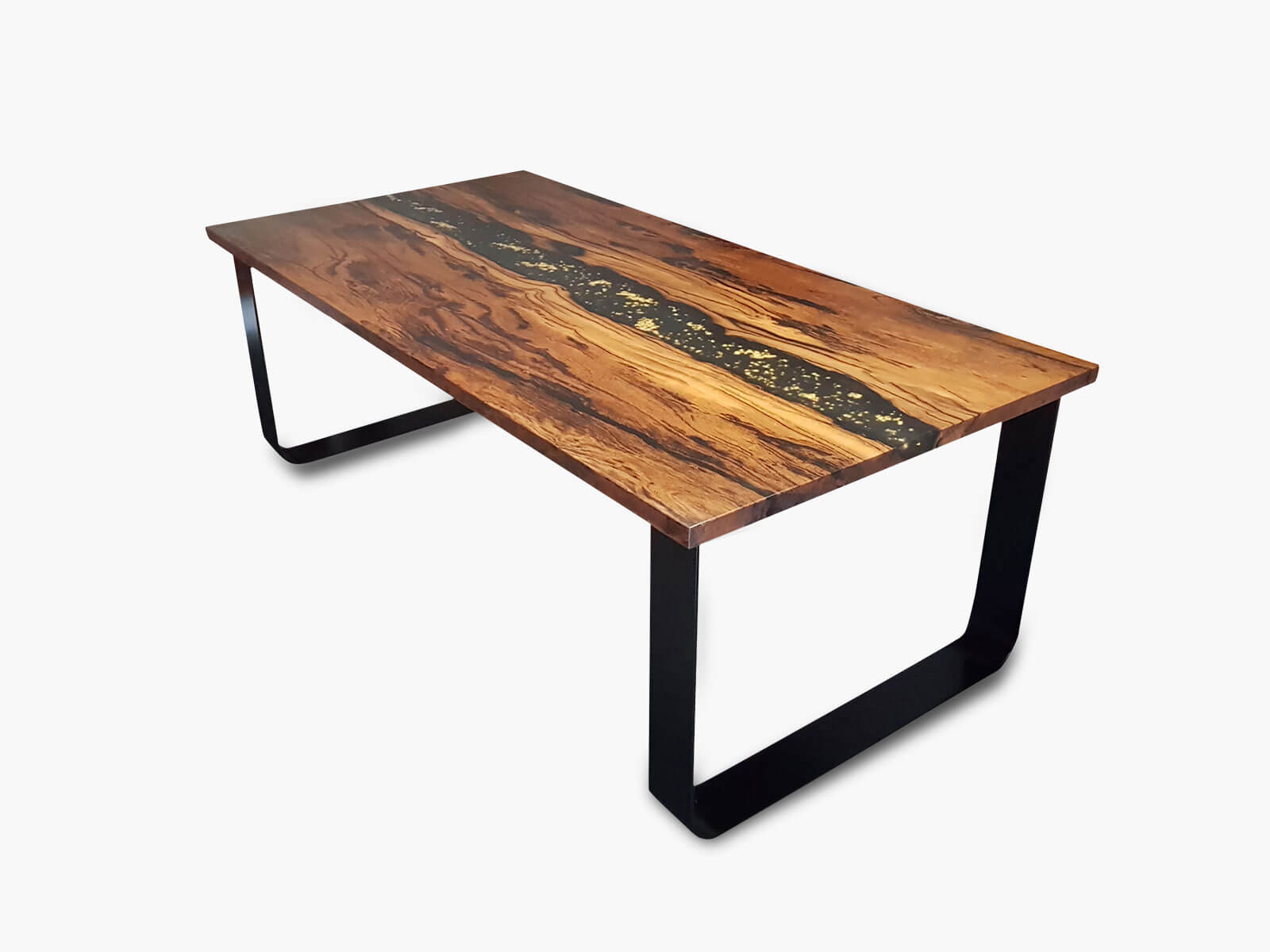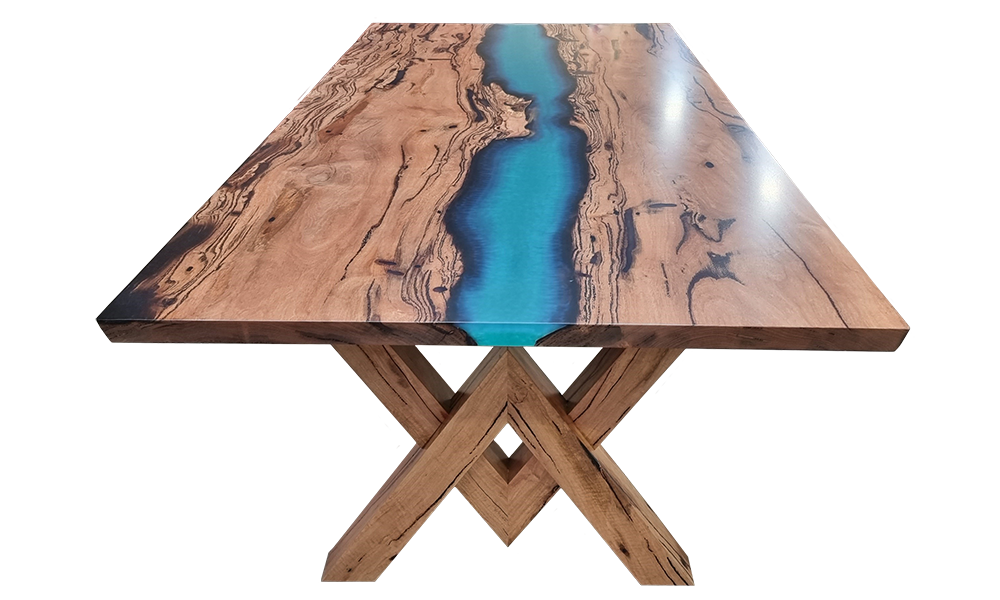What Is A Bathroom Vanity? A Guide To This Essential Bathroom Feature
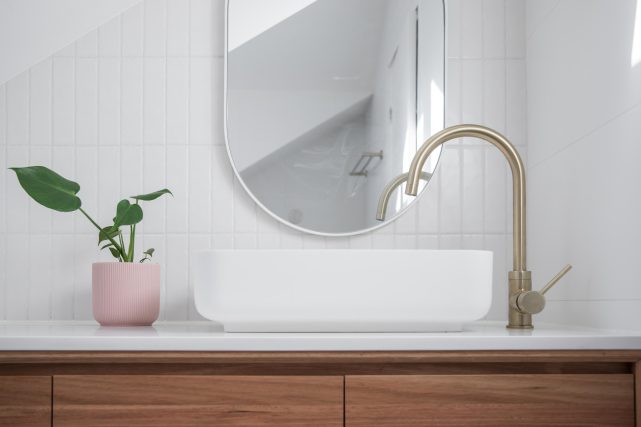
When it comes to bathroom design, the bathroom vanity is an essential feature. But what is a bathroom vanity? What are their features? And, why are they so trendy right now? A bathroom vanity is a multi-functional fixture combining storage, style, and practicality into one cohesive unit. Whether you’re planning a full-scale renovation or simply upgrading your bathroom, the vanity plays a key role in shaping the room’s functionality and aesthetic.
What is a bathroom vanity?
A bathroom vanity is a piece of furniture designed to house the sink and provide additional functionality through storage and countertop space. Often combining drawers, cabinets, and an integrated basin, vanities are a cornerstone of modern bathrooms, offering both form and function.
Traditionally, bathroom vanities were purely utilitarian, designed to hide plumbing and provide basic storage. Today, they’re stylish and versatile features that contribute significantly to a bathroom’s design.
The functions of a bathroom vanity
1. Sink housing
At its most basic, a vanity provides a home for the sink while concealing the plumbing beneath. This keeps your bathroom looking clean and organised while maintaining easy access for maintenance.
2. Storage solutions
From toiletries and towels to cleaning supplies, vanities offer much-needed storage in bathrooms of all sizes. Thoughtful organisation makes daily routines more efficient while keeping countertops clutter-free.
3. Aesthetic anchor
The vanity often serves as the focal point of the bathroom. Its design can set the tone for the entire space, whether you prefer minimalist, rustic, or modern styles.
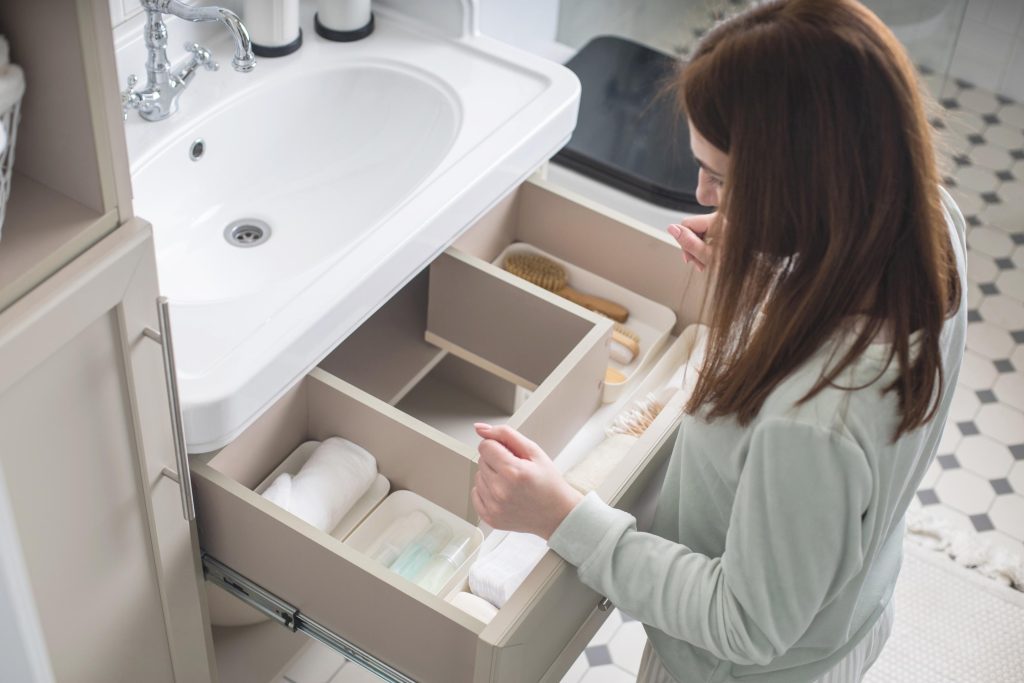
What materials make the perfect vanity?
The choice of materials significantly impacts a vanity’s durability, maintenance, and appearance. Here are some of the most common materials used for bathroom vanities:
1. Timber
- Pros: Timber is a timeless option, offering natural warmth, character, and versatility. It’s durable and can be customised with various stains, grains, and finishes.
- Why timber is ideal for Australian bathrooms: Timber is well-suited to Australia’s design preferences, where natural materials are favoured. When treated with water-resistant finishes, it withstands humid environments and retains its charm for years.
Check out our blog on the best timber for a bathroom vanity to learn more about durable and stylish options.
2. Stone
- Pro’s: Stone vanities, such as those made with marble or quartz, exude luxury and sophistication. They are highly durable and resistant to scratches.
- Con’s: Stone can be expensive and requires regular sealing and maintenance to prevent stains and costly maintenance in high-use bathrooms.
3. Laminate
- Pros: Laminate is cost-effective and available in a variety of finishes, including timber-look designs. It’s easy to maintain and ideal for budget-conscious renovations.
- Cons: While durable, laminate lacks the natural texture of timber or stone and can’t withstand heavy wear.
4. Composite materials
- Pros: Composite materials, like engineered stone or acrylic, are a hybrid option that combines the durability of stone with greater flexibility and affordability.
- Cons: While durable, they lack the natural appeal of stone or timber, scratch more easily, require careful maintenance, and can be almost as expensive as stone.
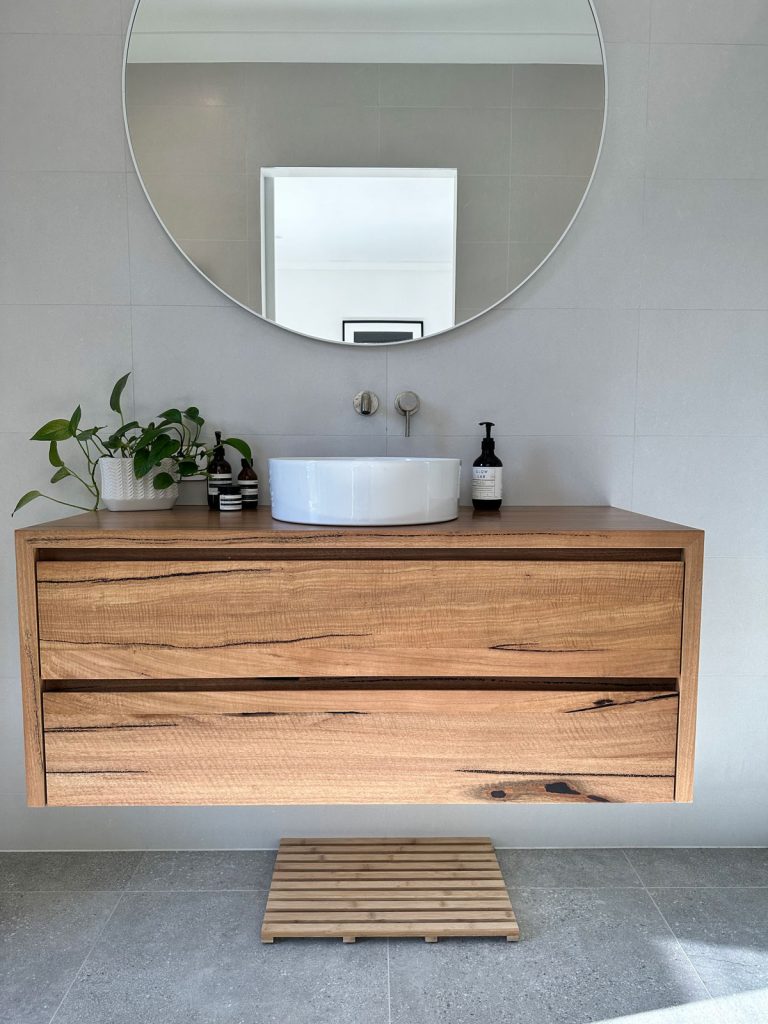
Why bathroom vanities have become trendy
Bathroom vanities have transitioned from purely functional pieces to design statements. Here’s why they’re stealing the spotlight:
- Personalised feel: Modern homeowners are choosing vanities that reflect their personal style, often customising materials, finishes, and configurations.
- Sustainability in design: Timber vanities, especially those made from sustainable materials, are gaining popularity for their warmth and eco-friendliness.
Tip: To help you select the most durable and stylish option, you need to know what timber is best for your bathroom vanity. Find out more here. - Space efficiency: Floating vanities and compact designs are perfect for smaller bathrooms, proving that even limited spaces can be chic and functional.
For more inspiration, check out our blog on bathroom vanity Ideas to explore stylish options for every bathroom.
Types of bathroom vanities
When choosing a bathroom vanity, it’s essential to consider the size, style, and functionality that best suits your space. Here are some popular types to help you decide:
1. Wall-mounted (floating) vanities
These vanities are mounted to the wall, exposing the floor space beneath. They’re ideal for modern bathrooms and create the illusion of a larger room.
2. Freestanding vanities
Freestanding vanities sit directly on the floor and come in various sizes and styles. They’re a versatile option, ranging from classic designs to contemporary pieces.
3. Double-sink vanities
Perfect for shared bathrooms, double-sink vanities maximise functionality without compromising on style. They’re a popular choice for master bathrooms.
4. Custom vanities
For a truly unique bathroom, custom vanities allow you to select materials, configurations, and finishes tailored to your needs. This option is ideal for those seeking a one-of-a-kind statement piece.
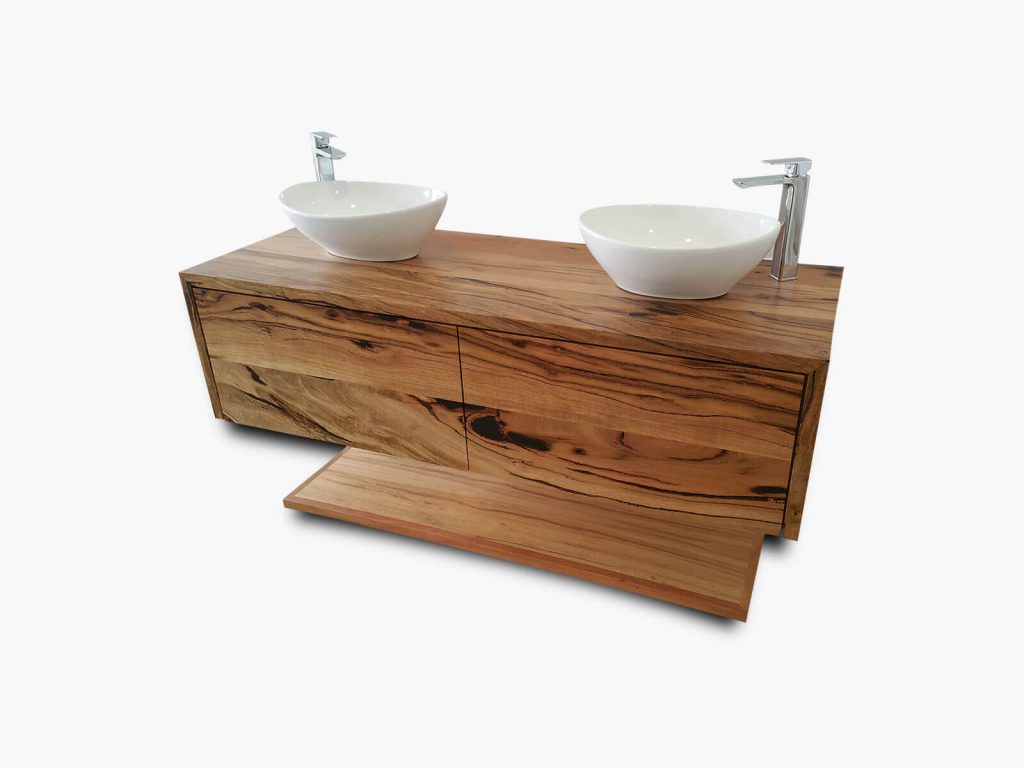
How to choose the perfect bathroom vanity
Selecting the right bathroom vanity requires balancing form and function. Here’s what to consider:
1. Size and proportion
Measure your space carefully to ensure your vanity fits comfortably without overcrowding the room. For smaller bathrooms, compact vanities or floating designs are great choices.
2. Style and material
Your vanity should complement your bathroom’s overall aesthetic. Wood finishes like oak or walnut add warmth, while materials like marble or quartz create a luxurious feel. Explore Jarrimber’s bathroom vanity units for high-quality, stylish options.
3. Storage needs
Think about how much storage you need. If you have limited space, look for vanities with built-in drawers or shelves to maximise functionality.
4. Plumbing and installation
Ensure the vanity is compatible with your existing plumbing. If you’re installing a floating vanity, make sure your wall can support its weight.
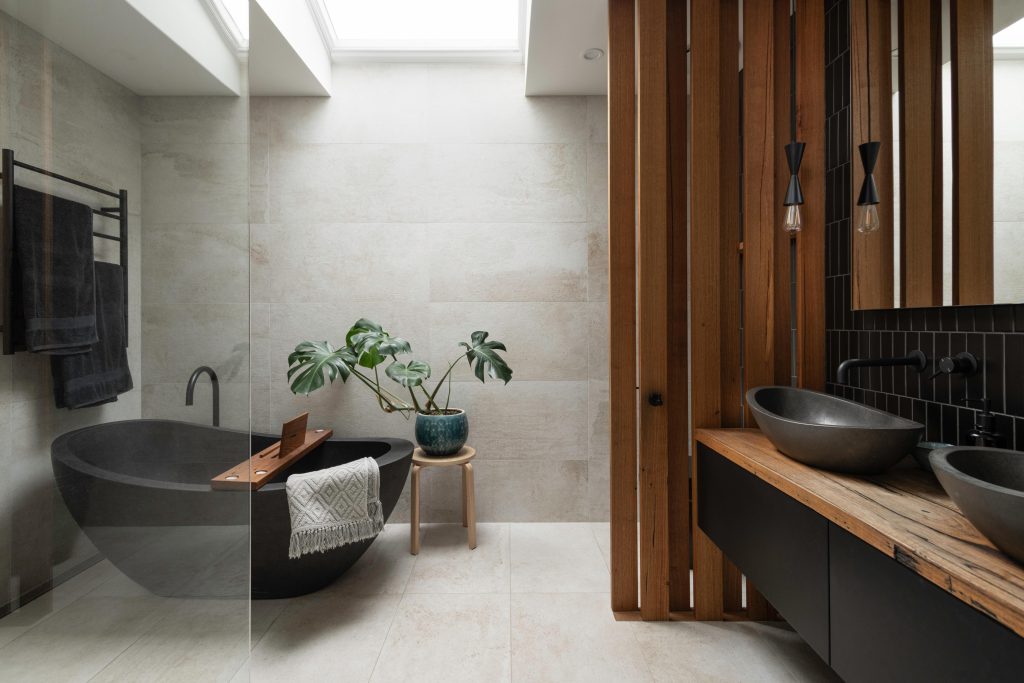
Where should you fit a bathroom vanity?
The placement of your bathroom vanity affects not only how the space looks but also how it functions daily. Follow these placement guidelines to maximise efficiency and usability:
1. Prioritise accessibility
Ensure the vanity is easily accessible for everyone in your household. Position it where it’s comfortable to use without obstruction, whether it’s for morning routines, makeup application, or handwashing. In shared bathrooms, consider the needs of children, elderly family members, or those with mobility challenges to ensure the vanity height and position are practical.
For find out more info on the perfect height for your bathroom vanity, read our blog.
2. Account for traffic flow
In smaller bathrooms, it’s important to avoid placing the vanity too close to other fixtures, such as the shower, bathtub, or toilet. A cluttered layout can disrupt movement and make the room feel cramped. Ensure adequate clearance between the vanity and other elements so that the space remains open and functional.
3. Optimise natural light
Lighting is key to a practical and inviting bathroom. Position your vanity near a natural light source, like a window, to make daily grooming tasks such as shaving or applying makeup easier. If natural light isn’t an option, install task lighting around the vanity mirror to ensure proper visibility.
4. Balance proportions
A vanity that’s too large can overwhelm a small bathroom, while an undersized one may look out of place in a spacious room. Choose a vanity that fits the scale of your bathroom. Compact or wall-mounted vanities are ideal for smaller spaces, while double-sink or freestanding vanities can add functionality to larger bathrooms.
5. Consider plumbing and structural support
If you’re opting for a wall-mounted vanity, ensure the wall has sufficient structural support to bear the unit’s weight. For freestanding vanities, check that the plumbing aligns with the sink and storage compartments to avoid costly modifications during installation.
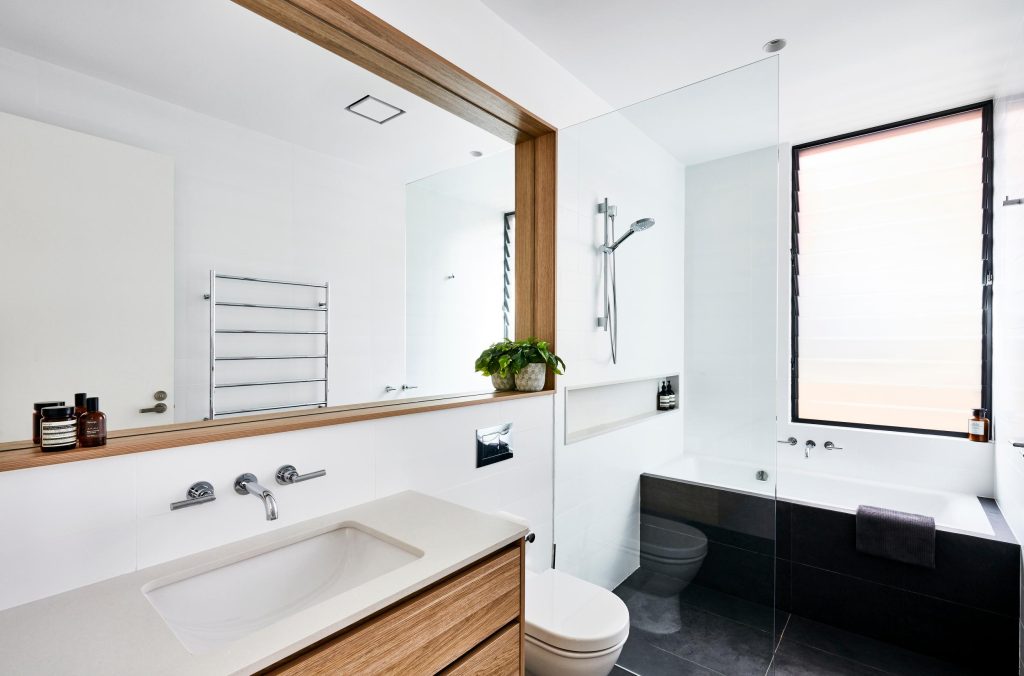
Do’s and Don’ts for choosing a bathroom vanity
Selecting the right bathroom vanity is about balancing functionality, design, and durability. Keep these simple tips in mind:
Do’s
- Measure your space: Ensure the vanity fits comfortably without overcrowding. Wall-mounted options can maximise floor space in smaller bathrooms.
- Prioritise durability: Choose water-resistant materials like solid timber with protective finishes to withstand humidity and daily wear.
- Maximise storage: Assess your storage needs and opt for vanities with deep drawers, shelves, or organisers to keep essentials tidy.
- Get the height right: A vanity that’s too low or too high can lead to discomfort. You will use your vanity daily when washing your face or brushing your teeth, so make sure it’s set up right for you.
Don’ts
- Skip water resistance: Avoid untreated or low-quality materials. Opt for finishes like long-lasting, quality products.
- Compromise on quality: Invest in premium craftsmanship to ensure longevity and avoid frequent repairs or replacements.
- Neglect lighting: Add task lighting near the vanity mirror for better functionality. Use LED strips or wall sconces to eliminate shadows.
Trends in bathroom vanities
Design trends for bathroom vanities reflect a growing emphasis on style, sustainability, and functionality. Here are some of the most popular looks:
- Natural materials: Timber vanities bring warmth and texture to any bathroom. Opt for sustainably sourced options to align with eco-conscious trends.
- Minimalist designs: Clean lines, neutral colours, and sleek hardware create a timeless, uncluttered look.
- Floating vanities: These space-saving options are perfect for modern homes, offering both style and practicality.
- Bold finishes: Dark wood, contrasting countertops, or statement sinks can make your vanity the centrepiece of your bathroom.
To find out the top bathroom vanity trends of 2025, check out our blog.
Caring for your bathroom vanity
Proper care ensures your vanity stays in excellent condition for years to come. Follow these maintenance tips:
- Clean regularly: Wipe down the countertop and cabinetry with a soft cloth and mild cleaner. Avoid abrasive products that can damage the finish.
- Protect against water damage: Dry spills immediately and use water-resistant finishes to prevent warping or staining.
- Inspect for wear and tear: Check for loose hardware or signs of damage, addressing issues promptly to avoid costly repairs.
For detailed information on how to clean your solid timber bathroom vanity to keep it in pristine condition, read our blog here.
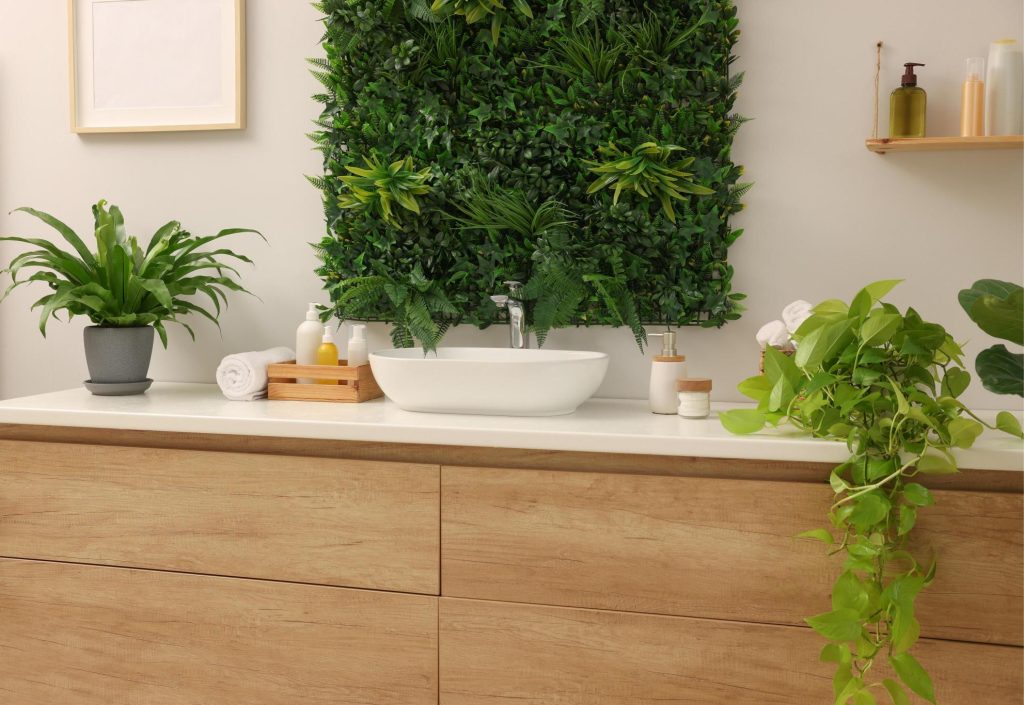
Eco-friendly options for sustainable bathroom vanity designs
Sustainability is a growing concern in bathroom design, and bathroom vanities are no exception. Here are some eco-friendly options to consider:
1. Sustainably sourced timber
Opt for vanities made from FSC-certified or PEFC-certified timber to ensure responsible sourcing. Timber vanities offer a natural, renewable alternative to synthetic materials while aligning with Australia’s love for eco-conscious designs.
2. Low-VOC finishes
Look for finishes that minimise harmful volatile organic compounds (VOCs). Low-VOC paints, stains, and sealers are better for your health and the environment.
3. Recycled materials
Vanities made from reclaimed wood or recycled composite materials are both sustainable and stylish. These options often feature unique textures and stories, adding character to your bathroom.
Why choose Jarrimber for your bathroom vanity?
At Jarrimber, we believe a bathroom vanity should combine form and function seamlessly. Our bathroom vanity units are crafted from premium timber, offering timeless beauty and exceptional durability. Whether you’re looking for a minimalist floating vanity or a statement piece for a master ensuite, our designs are built to impress.
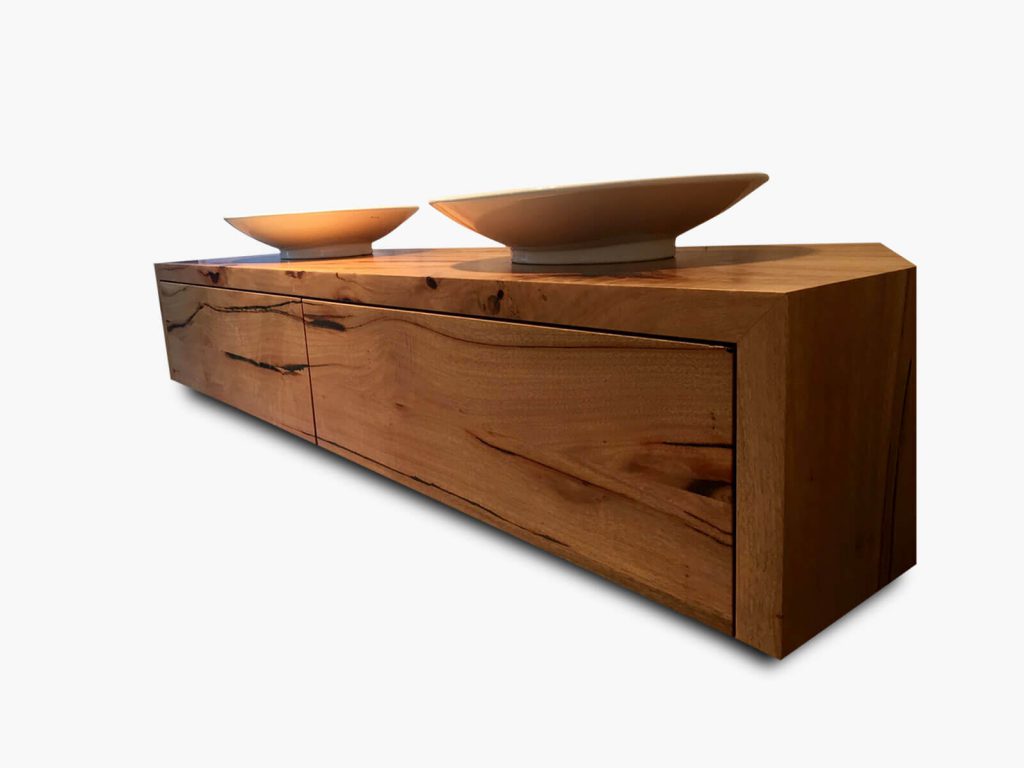
So, what is a bathroom vanity?
A bathroom vanity is more than just a functional fixture—it’s the heart of your bathroom’s design. From providing essential storage to creating a visual anchor, the timber bathroom vanity unit combines practicality with style. The right vanity can transform your bathroom into a beautiful and functional space. Ready to find the perfect vanity for your bathroom? Contact us today to discover quality craftsmanship and stunning designs tailored to your needs. Let Jarrimber help you create a bathroom you’ll love for years to come.
Share This

